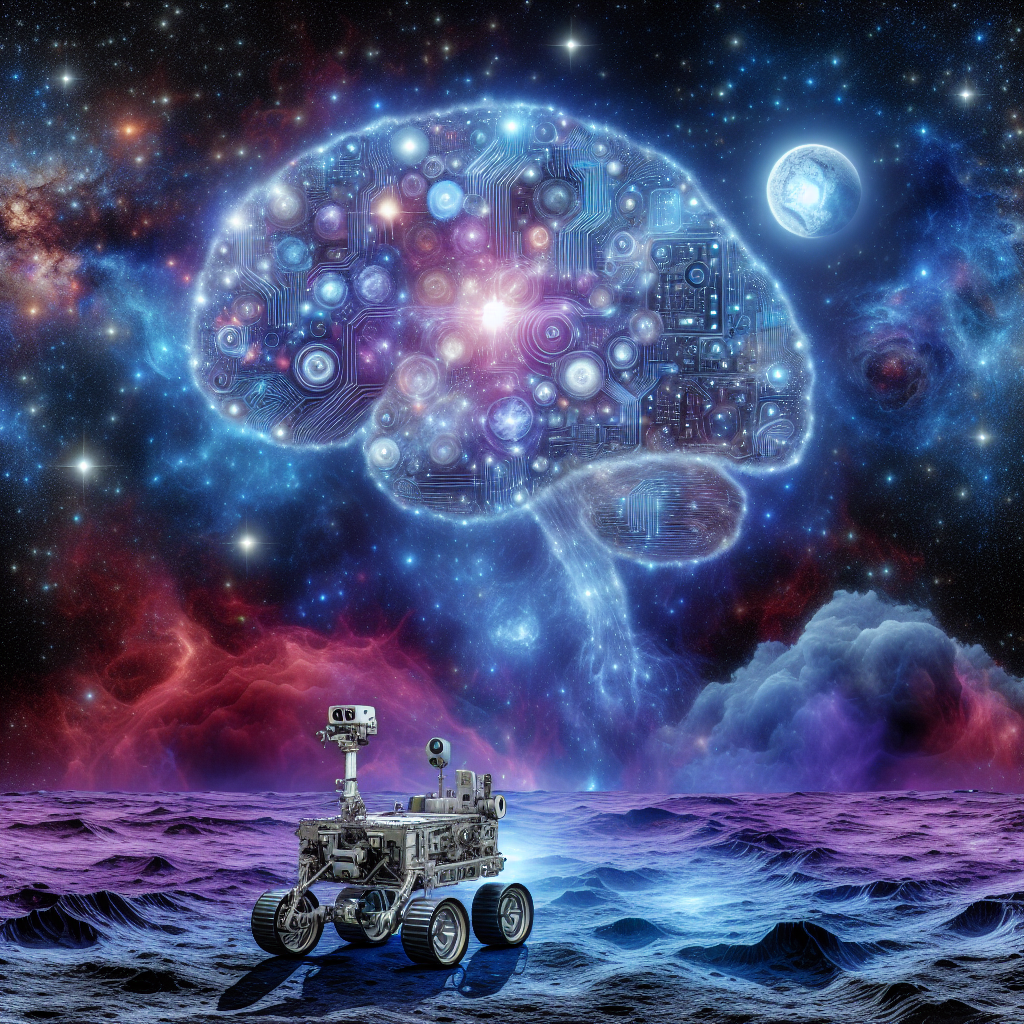From the days of the Space Race to the present-day missions to Mars and beyond, space exploration has always been at the forefront of human ingenuity and innovation. With the advancement of technology, particularly in the field of artificial intelligence (AI), the potential for AI-driven solutions in space exploration and research has never been greater.
AI is revolutionizing the way we explore space by enabling autonomous decision-making, predictive modeling, and data analysis on a scale that was previously unimaginable. From autonomous spacecraft navigation to analyzing vast amounts of data collected from telescopes and satellites, AI is playing a crucial role in unlocking the secrets of the universe.
One of the key areas where AI is making a significant impact in space exploration is in autonomous spacecraft navigation. Traditionally, spacecraft navigation has relied on ground-based controllers to send instructions to the spacecraft, which can lead to delays and errors. With AI, spacecraft can make decisions in real-time based on their surroundings, enabling them to navigate through space more efficiently and safely. This is particularly important for missions to distant planets like Mars, where communication delays can be significant.
AI is also being used to analyze the vast amounts of data collected from telescopes and satellites in space. With the help of machine learning algorithms, scientists can sift through terabytes of data to identify patterns, anomalies, and potential areas of interest. This has led to groundbreaking discoveries, such as the detection of exoplanets and the identification of potential sites for future space missions.
In addition to navigation and data analysis, AI is also being used to develop predictive models for space missions. By feeding historical data into AI algorithms, scientists can forecast the behavior of celestial bodies, predict the trajectory of asteroids, and even simulate the effects of gravity on spacecraft. This allows mission planners to anticipate potential challenges and optimize their strategies for exploration.
One of the most exciting applications of AI in space exploration is in the field of robotics. Autonomous robots equipped with AI algorithms can perform tasks that are too dangerous or complex for humans, such as exploring the surface of Mars or repairing satellites in orbit. These robots can navigate through rugged terrain, analyze their surroundings, and make decisions in real-time, all without human intervention. This opens up new possibilities for exploration and research in space.
Despite the incredible potential of AI in space exploration, there are still challenges to overcome. One of the biggest challenges is ensuring the reliability and safety of AI systems in the harsh environment of space. Radiation, extreme temperatures, and the vacuum of space can all affect the performance of AI algorithms, so robust testing and validation are essential to ensure their effectiveness.
Another challenge is the ethical implications of using AI in space exploration. As AI becomes more advanced, questions arise about the role of humans in decision-making and the potential consequences of autonomous systems in space. It is important for scientists and policymakers to address these ethical concerns and ensure that AI is used responsibly in space exploration.
Despite these challenges, the potential of AI-driven solutions in space exploration and research is vast. From autonomous spacecraft navigation to data analysis and predictive modeling, AI is revolutionizing the way we explore the universe. As technology continues to advance, we can expect even greater discoveries and achievements in the field of space exploration thanks to the power of AI.
FAQs:
Q: How is AI being used in space exploration?
A: AI is being used in various ways in space exploration, including autonomous spacecraft navigation, data analysis, predictive modeling, and robotics. AI algorithms enable spacecraft to make decisions in real-time, analyze vast amounts of data, forecast celestial body behavior, and perform complex tasks in space.
Q: What are the benefits of using AI in space exploration?
A: The benefits of using AI in space exploration include increased efficiency, safety, and autonomy. AI enables spacecraft to navigate through space more effectively, analyze data more efficiently, and make decisions autonomously. This leads to groundbreaking discoveries and advancements in space research.
Q: What are the challenges of using AI in space exploration?
A: Some of the challenges of using AI in space exploration include ensuring the reliability and safety of AI systems in the harsh environment of space, addressing ethical concerns about autonomous decision-making, and overcoming technical limitations related to radiation and extreme temperatures.
Q: What is the future of AI-driven solutions in space exploration?
A: The future of AI-driven solutions in space exploration is bright. As technology continues to advance, we can expect even greater achievements in space research and exploration thanks to the power of AI. Autonomous spacecraft, robotic explorers, and predictive models will play a crucial role in unlocking the secrets of the universe.

